At Earlham, we have a large population of international students from around 60 different countries on F-1 visas at any given time. We also have a variety of dual domestic, permanent resident, and undocumented students. When advising students whose cultural and educational backgrounds vary, there are several things that should be taken into consideration.
Considerations when Advising International Students
New International Students
-
- ELL Requirements/Issues
- Incoming international students are screened and invited for English level assessment interviews before arrival as needed. There is also an attempt to reach out to incoming dual domestic and permanent resident students who may also need English language support, but at times, these students may slip through our filters. If you are working with a first year student who may potentially need English language support, please don’t hesitate to refer them to us for assessment.
- ELL Requirements/Issues
-
-
- Based on the outcomes of the pre-arrival assessment interviews, students are recommended for either placement in a regular ESEM or one of the two ESEMs reserved for English language learners. In some cases, specific ESEMs and/or ELL courses may be required or recommended.
-
-
-
- Students will receive placement emails before registration informing them of these requirements and recommendations.
-
-
- Cultural Adjustment Period
- Most incoming students are coming to the U.S. for the first time, and this may cause them to experience significant levels of culture shock after the initial honeymoon phase wears off. They are adjusting not only to campus life but also life in Richmond, as well as the United States. They may also be confronting less than pleasant realities about race and discrimination in America that they may need guidance and support with, particularly if they are transitioning from being part of the majority to now being considered a minority in the U.S.
- Cultural Adjustment Period
-
-
- Academically, they may not be used to the American classroom environment and expectations. If they seem to be struggling, asking probing questions, being explicit and providing extra advice about typical classroom expectations may be necessary.
- It is also important not to single students out within the classroom environment, tokenize them, or ask them represent their race or culture unless they volunteer such information on their own. We have many students who are the sole representatives of their country on campus, which can make them feel uncomfortable if singled out. While many students are happy to share details about their culture and country, and space should be provided for this, it needs to be done considerately and not made to feel as if it is an obligation that only they have.
- Academically, they may not be used to the American classroom environment and expectations. If they seem to be struggling, asking probing questions, being explicit and providing extra advice about typical classroom expectations may be necessary.
-
-
-
- Socially, international students may also struggle to adjust initially. It is helpful to check in with them to see if they have been making friends and how well they are connecting to campus life. Helping them find ways to connect to student life on campus can help if they are feeling isolated, which can happen often, particularly since we have many students who are the sole person from their country/culture on campus.
-
-
- Credit Load Requirements (and flexibilities)
- International students on F-1 visas must maintain a minimum credit load of 12 credits at all times (they may not drop below this at any point during the semester)
- Credit Load Requirements (and flexibilities)
-
-
- During the first semester, if a student is having significant academic difficulties due to struggling with English or academic expectations, they might be eligible for a reduced course load but this has to be approved by an international adviser after consultation.
-
-
- International Student Success Course (INTD 199)
- All incoming international students are encouraged to enroll in INTD 199: International Student Success, a 7-wk, 1-credit, pass/fail course meant to assist students in their acclimation to college life, Earlham, and the cultural adjustments they will go through.
- International Student Success Course (INTD 199)
-
- Restrictions related to internships related to F-1 visas
- First year students cannot get work authorization for paid off-campus internships until after they have been in the U.S. for two consecutive semesters.
- Restrictions related to internships related to F-1 visas
-
-
- They also need to declare a major with the registrar’s office before they can obtain work authorization, as that has to be directly tied to their declared major.
-
-
- On-Campus Employment (SSN)
- First year students can work on-campus only during their first year, but they have to apply for a social security number before they start working, which can take some time to obtain initially.
- On-Campus Employment (SSN)
-
-
- First year students are only eligible for work on campus, they are not eligible for off-campus employment authorization for internships and such until after they have completed two consecutive academic semesters.
-
Continuing International Students
-
- Cultural Adjustment Period
- Students continuing their studies may be past the initial honeymoon and culture shock stages and may begin to adjust to life on campus, but they may hit moments where life becomes difficult as they continue to develop their concepts of individual identity and how their lives in the U.S. vs. at home factor in. They may also be dealing with issues of racism or discrimination, feeling unheard or under-supported, which may be starkly different than their experiences at home.
- Cultural Adjustment Period
-
-
- Homesickness, concerns about family and situations in their home countries, and finances can become stressors, especially for students who are unable to travel home over breaks. In many cases, this is the first time some of our students have been away from home, and they are a long way from home.
-
-
- Credit Load Requirements
- Continuing F-1 students must maintain 12 credits minimum at all times during the semester.
- Credit Load Requirements
-
- Cultural Differences
- Students may continue to struggle with cultural differences from both academic and social perspectives.
- Cultural Differences
-
-
- Here, making your expectations clear for assignments and classroom tasks is essential. You may also need to explain where students can locate certain resources.
-
-
-
- Consider the perspectives and viewpoints in your materials, are they European or U.S. centric? Consider including other perspectives and points of view where possible. While student input is valuable, do your best to not obligate a student to provide opinions on an issue on behalf of their culture (provide space for them to share but not expectation or pressure).
-
-
- Internships and CPT Requirements
- Any student who has completed at least one academic year and declared a major can be eligible for off-campus work authorization through the use of Curricular Practical Training (CPT).
- Internships and CPT Requirements
-
-
- The student must be able to earn credit for the off-campus work authorization via the approved means either during the semester of the employment or immediately following the employment if it occurred over a break.
-
-
-
- Students cannot work more than 20 hours per week while classes are in session while on CPT, unless it is an integral part of their program (such as with the Washington Program, or the Philadelphia Program).
-
-
-
- Authorized employment must be related to the student’s major, which the academic advisor must verify on the CPT Recommendation form.
-
-
-
- See our Faculty Guide to CPT for more information
-
-
- On-Campus Employment
- F-1 students are not allowed to work off-campus at any time without prior authorization. This also includes fee for service type gigs such as pet-sitting, house-sitting, baby-sitting or yard work.
- On-Campus Employment
-
-
- Many F-1 students have work award as part of their financial aid packages, which is approved for 10 hours per week while classes are in session.
-
-
-
- By federal law, F-1 students may not work more than 20 hours per week while classes are in session. Over long breaks, such as winter break or summer break, they may work full time hours on campus.
-
Graduating Senior International Students
-
- F-1 Visa Post-Graduation Options
- Depart the U.S. within 60 days of their program end date (which is usually graduation).
- F-1 Visa Post-Graduation Options
-
-
- Attend graduate school and have their F-1 SEVIS record transferred to their new school if they will begin within 5 months of their program end date.
-
-
-
- Apply for post-completion Optional Practical Training (OPT) work authorization (see below).
-
-
-
- Apply for a change of status to some other type of visa.
-
-
- Credit Load Requirements
- Seniors may be part time for their final semester with permission from the registrar’s office and the international student and scholar services office if they have otherwise met all their graduation requirements. They must take at least 6 credits for financial aid purposes.
- Credit Load Requirements
-
- Internships and CPT for F-1 visa holders
- Seniors are only eligible for CPT before graduation.
- Internships and CPT for F-1 visa holders
-
-
- All credits for approved senior year CPT must be completed before graduation.
-
-
- Optional Practical Training (OPT) Work Authorization
- F-1 students can apply for post-completion work authorization through Optional Practical Training (OPT) that would allow them to work for 12 months after they finish their degree.
- Optional Practical Training (OPT) Work Authorization
-
-
-
-
- STEM majors may be eligible to apply for a 2-year extension of this work authorization after the initial 12-month authorization.
-
-
-
-
-
- Students should consult with an international student adviser in their final semester to apply for OPT.
-
-
-
- Students are eligible to apply for OPT as early as 90 days before their program end date (which is typically the commencement date) and 60 days after their program end date if they have not departed the U.S.
-
-
-
- Employment on OPT must be related to a student’s major(s), but students do not need to have a job to apply for OPT work authorization.
-

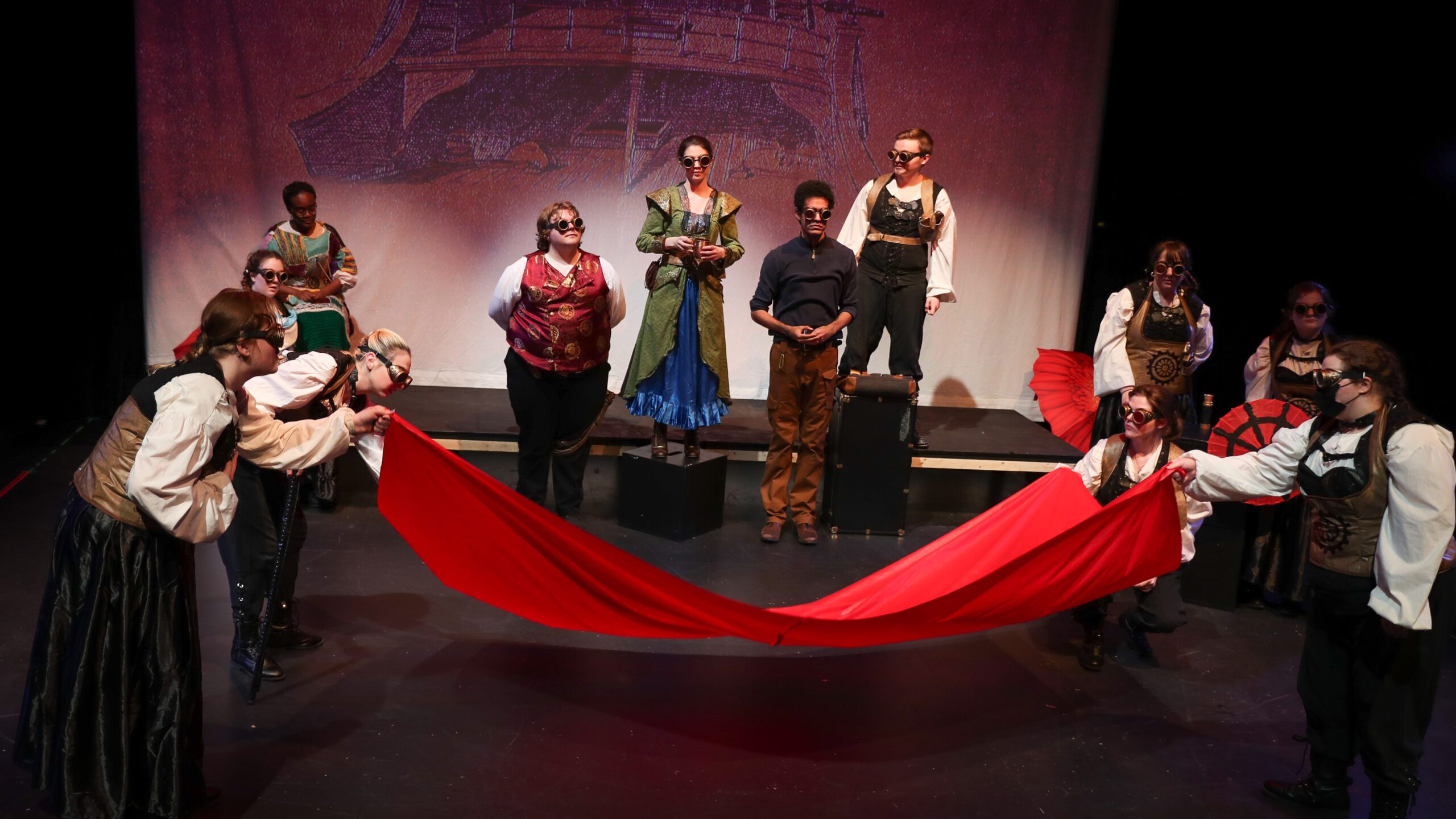
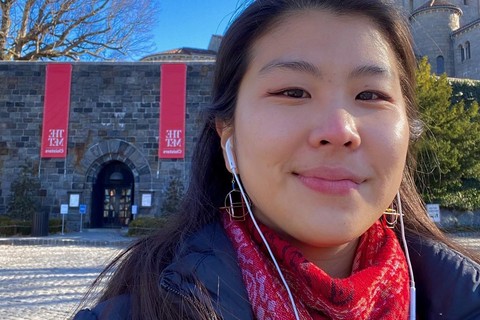
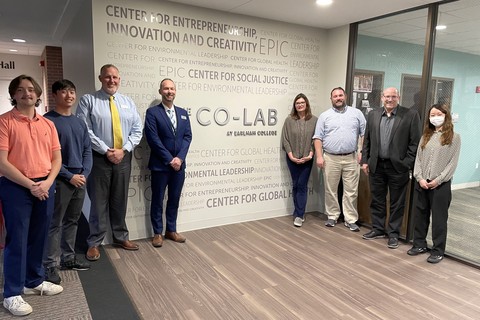
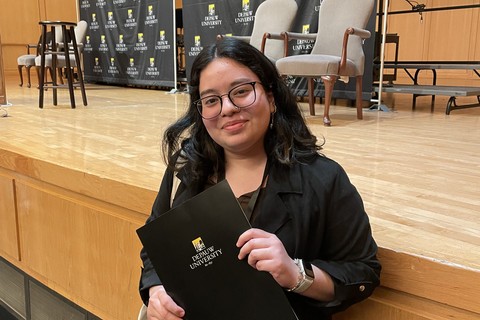
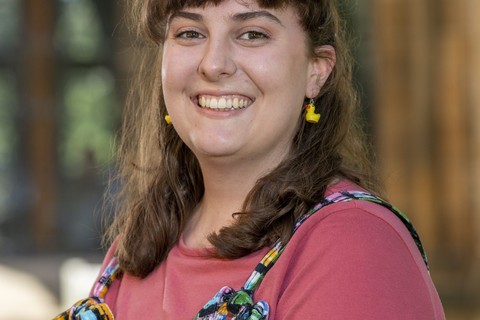


 Earlham College, an independent, residential college, aspires to provide the highest-quality undergraduate education in the liberal arts and sciences, shaped by the distinctive perspectives of the Religious Society of Friends (Quakers).
Earlham College, an independent, residential college, aspires to provide the highest-quality undergraduate education in the liberal arts and sciences, shaped by the distinctive perspectives of the Religious Society of Friends (Quakers).
